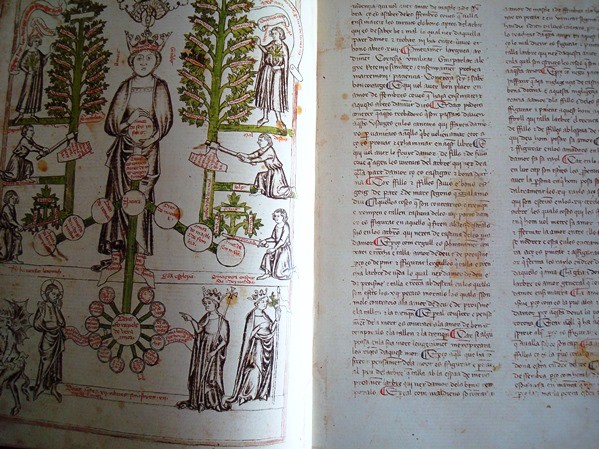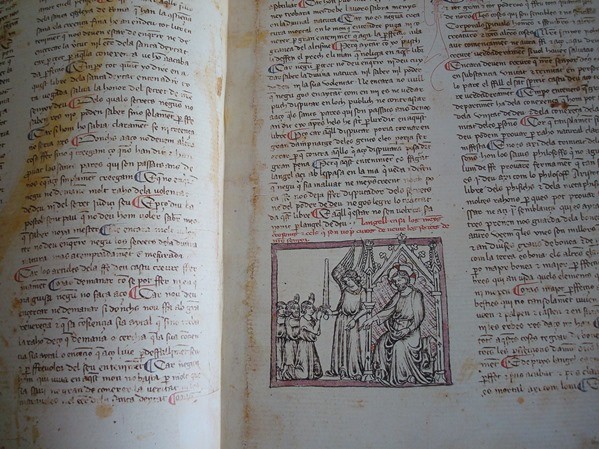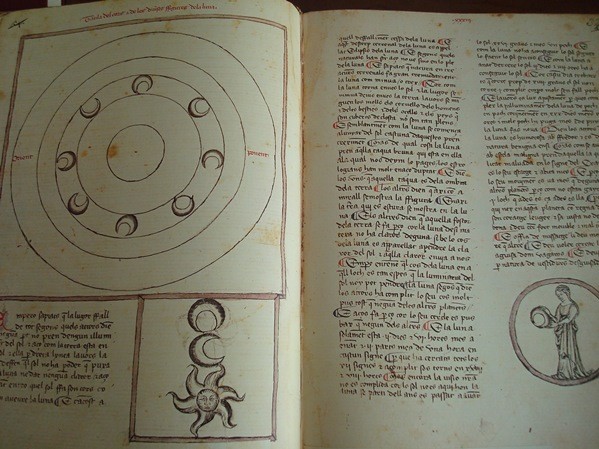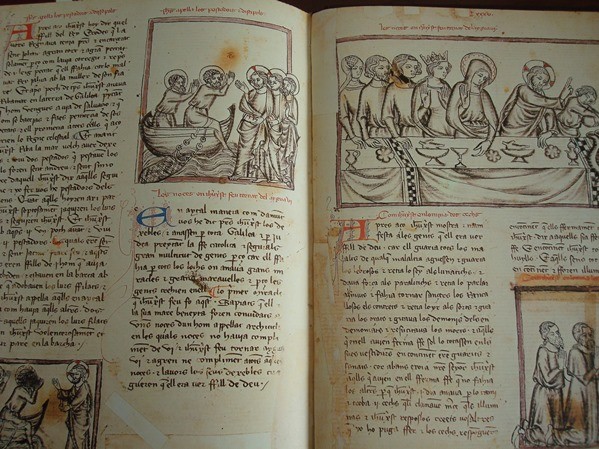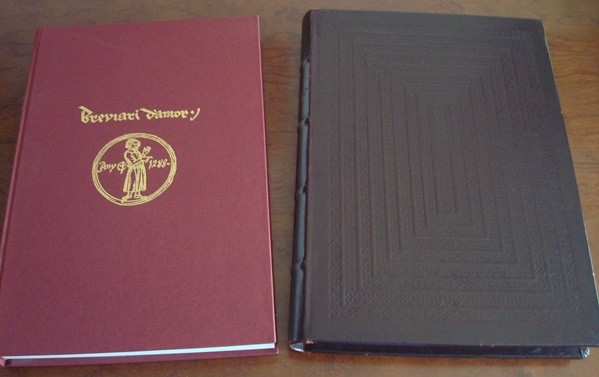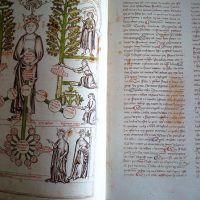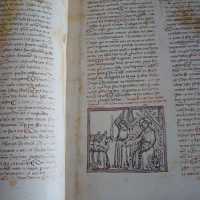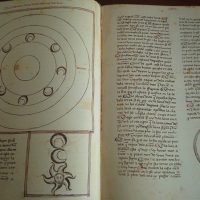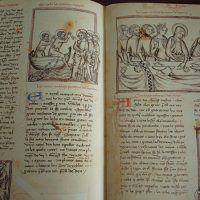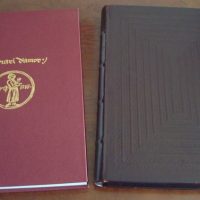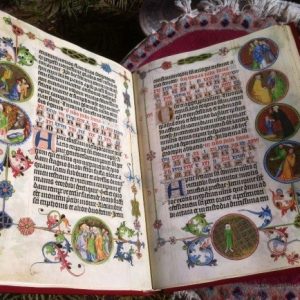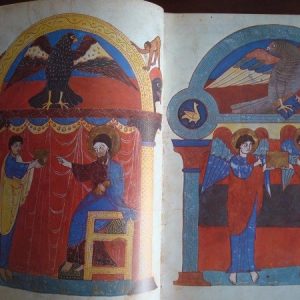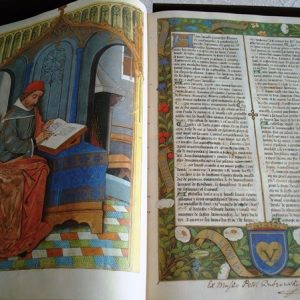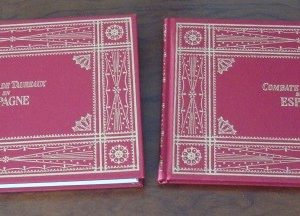Description
The Breviari d’Amor, originally written in Provencal by the Franciscan monk Matfre Ermengaud of Béziers between 1288 and 1292, and translated into Valencia (probably by Guillem de Copons) one hundred years later, he was in Western Europe rapid and continuous acceptance throughout the Middle ages. But it really was a favorite book of many bibliophiles and learned men is in France and the Crown of Aragon. The Breviari is translated in a few years when the splendor that would immediately know the letters Valencia is becoming well patent. Hence the translation of this book to the Valencian can also be interpreted as a tribute to the rich Occitan literature that had so influenced the first poets of the Kingdom of Valencia and in the last decades of the fourteenth century was being subdued by the French language. On the other hand, it comes to highlight once again the close ties and deep cultural affinities existing between the Crown of Aragon and the lands of Occitania.
Nor should we forget that the spirituality of Franciscan inspiring Breviari always enjoyed sympathy among the Crown of Aragon as lulismo. Among readers and admirers of the book people like the poet Pere March, King John I and, of course, the famous bibliophile named Alfonso the Magnanimous were counted.
It is a Breviari because the author deliberately shuns make Opus Major or a thorough and meticulous encyclopaedia, and d’Amor because the author this concept is what defines God, which, with this love (creator), rules and governs all beings and things created. Therefore, throughout the book they are studied all knowledge that relate to the man and the things of this.
Astronomy, natural history, astrology, meteorology, physics, geography, theology and morality are explained in the form of short stories colored with all sorts of rhetorical and linguistic resources that make any issue be coated with a grace special that we perceive much more pronounced as readers of a work that was intended for readers and / or viewers for six centuries. Where it manifests sharper wit it is when the author satirizes some sector of society. Doctors, peasants, jesters, kings, administrators, women, players, bourgeois … are passed through an ironic, and often deeply demanding and always biting, riddle. The symbolism that the author uses to describe the evils convincingly is truly amazing and is an absolute pleasure reading if accompanied by a detailed miniatures abundant and delicious analysis.
This issue corresponds to the facsimile edition held in 1980 the now defunct Valencian publishing Vicent Garcia, on the original is preserved in the National Library of Spain (Madrid), where he arrived after random secular journey that began in 1426 in Valencia and ended in the Library of the Count-Duke of Olivares, from where he went to the (now National) Royal Library.
Breviari d’Amor, Summa of Doscentista culture: Matfre Ermengaud Beziers (Author). Guillem de Copons (Translator Valencian). Hometown: Valencia, s. XV. Today at the National Library of Spain (Res signature. 203).
Facsimile large format 31.5 x 42.5 cm. 320 pages. Tinted edges and punched. Leatherbound on board recorded dry.
Book study large format 28 x 41 cm. 488 pages. Bound in red cloth hardcover. It contains introduction, transcription and translation by Antonio Ferrando French. Valencian and Spanish texts bilingual.
numbered and limited to 3,001 copies, certified affidavit edition. The copy is offered at a very low, less than 10 number corresponds.
Shipping by the buyer, upon request and destination. Consult us without obligation any questions, as well as facsimile or any other item that is looking for.




